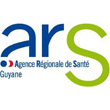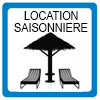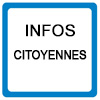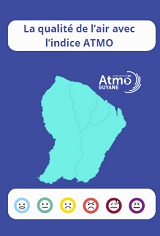Blada.com
dimanche 01 mars
Boîtes aux lettres
Courrier des lecteurs
Petites annonces
Emploi / Formation
Covoiturage
Infos citoyennes
Infos citoyennes
29/10/21
Avec 69 internes, la Guyane bat des records d’attractivité
 Lors du semestre qui démarre la semaine prochaine, le nombre d’internes va quasiment doubler par rapport à ce qu’il était ces dernières années. Beaucoup est fait pour attirer les futurs médecins. Et selon Guillaume Gautier, président du Bureau des internes de Guyane, ce nombre pourrait encore augmenter. « En venant ici, les internes deviendront aussi bons médecins qu’en étant formés en Métropole. »
Lors du semestre qui démarre la semaine prochaine, le nombre d’internes va quasiment doubler par rapport à ce qu’il était ces dernières années. Beaucoup est fait pour attirer les futurs médecins. Et selon Guillaume Gautier, président du Bureau des internes de Guyane, ce nombre pourrait encore augmenter. « En venant ici, les internes deviendront aussi bons médecins qu’en étant formés en Métropole. »
Ce semestre d’internat de médecine qui se termine, Guillaume Gautier l’a passé en partie… à l’antenne médicale des armées de Cayenne. Le président du Bureau des internes de Guyane (BIG) est au soutien des militaires du 9e Rima, ceux de la Marine nationale à Dégrad-des-Cannes… Ce stage illustre la diversité des terrains désormais disponibles pour les internes en Guyane : traditionnellement les urgences à Cayenne et Saint-Laurent du Maroni, la pédiatrie, la gynécologie-obstétrique, mais aussi les centres délocalisés de prévention et de soins (CDPS), la PMI de Maripasoula… Ce semestre, ils seront 69 à se former en Guyane. Un record : depuis trois ans, on comptait une quarantaine d’internes en Guyane chaque semestre.
Cette soudaine attractivité de la Guyane, Guillaume Gautier tente de l’expliquer : « D’abord le travail des précédents internes qui ont répété que la Guyane c’est bien, c’est beau, que les terrains de stage sont bons, que la formation est tout aussi qualitative qu’aux Antilles. L’an dernier, nous avons été un bon noyau à arriver en premier semestre en Guyane. Certains sont ensuite partis aux Antilles et reviennent pour leur troisième semestre, en ayant convaincu les internes des Antilles de venir en Guyane. On le vend ! » Cela a pu être facilité aussi par la violence de la vague de Covid, pendant les grandes vacances aux Antilles. « Certains ont peut-être voulu voir ailleurs », s’interroge le président du BIG.
Tout y passe. La page Facebook du BIG, les groupes WhatsApp, le bouche à oreille. « Beaucoup d’étudiants se renseignent. On répond toujours. Le Bureau des internes de la Caraïbes, qui réunit les Antilles et la Guyane, nous offre aussi une visibilité au niveau national. » Durant les grandes vacances, en pleine troisième vague, les internes ont sollicité des étudiants ayant validé leur sixième année pour venir en tant que faisant fonction d’interne (FFI). Sept ont accepté. « Tous ont dit qu’ils reviendraient », se souvient Guillaume Gautier.
L’internat est un enjeu majeur de la création du futur CHU de Guyane. Le BIG a été relancé il y a un an également, après plusieurs années de sommeil. A l’Agence régionale de santé (ARS), Guillaume Icher, aujourd’hui responsable du centre de vaccination de l’Encre, a été missionné sur le sujet il y a un an. Aujourd’hui, Audrey Mondor lui a succédé au sein de la direction de l’offre de soins. Elle souligne l’important travail, entamé depuis plusieurs mois, pour expliquer l’attractivité de la Guyane. Un travail qui a porté ses fruits, selon Guillaume Gautier. Son seul regret : « Certains stages ont obtenu l’agrément mais l’université ne l’a pas signalé. »
La président du BIG souligne aussi « le volontarisme des responsables de stage : quand ils viennent nous chercher, on se dit qu’ils sont motivés pour accueillir des internes (…) On n’a pas le même plateau technique qu’en Métropole, mais il y a une volonté de bien faire, de tirer vers le haut. Les internes rencontrent parfois les mêmes difficultés qu’en Métropole, mais il y a une volonté de nous donner une bonne formation. La crise Covid a aussi modifié les modes d’enseignement. Avec le développement des cours en distanciel, aujourd’hui, nous suivons les mêmes cours que les internes des Antilles, avec les mêmes intervenants. Nous n’avons donc rien à leur envier. Nous avons de très bons professeurs, des médecins libéraux de qualité, des jeunes chefs très investis, qui mettent en place des cours toutes les semaines. Le dispositif d’assistanat partagé (avec l’AP-HP) donne aussi un sentiment de bonne qualité de formation. On nous présente les mêmes recommandations qu’à Paris. » Ségolène Bertin renchérit : « Il faut aller ailleurs aussi pour se rendre compte de ce que l’on a ici. » Guillaume Gautier conclut : « On explique aux futurs internes qu’en venant ici, ils deviendront aussi bons médecins qu’en étant formés en Métropole. »
En quinze ans, une image de la Guyane qui s’est nettement améliorée
A l’échelle de l’internat des Antilles-Guyane, c’est la préhistoire. Lorsque Jean-Charles Gardrat, aujourd’hui médecin libéral à Rémire-Montjoly, a débuté le sien en 2004, ils étaient 13 internes répartis entre la Martinique, la Guadeloupe et la Guyane. Il faisait partie des trois de Guyane. Pour sa thèse soutenue en 2009, il interrogera les quatre premières promotions d’internes Antilles-Guyane (2004-2007) soit… 106 personnes, à peine plus que le nombre d’internes en Guyane pour ce seul semestre. Son sujet : le profil, les a priori et la formation de ces quatre premières promotions.
A l’époque, 38 internes pensent que se former aux Antilles-Guyane « est plutôt un handicap pour certains postes hospitaliers » et seulement 15 pensent que c’est un avantage. Une majorité (56 % en Guyane) pense « qu’il leur serait difficile ou très difficile d’avoir accès à des livres de médecine ou à des ouvrages scientifiques, (…) que la qualité des cours à la faculté de médecine serait moins bonne ou bien moins bonne que celles des cours dans les facultés de médecine métropolitaines (…) que l’offre, la qualité et le choix des avis spécialisés seraient moins bons ou bien moins bons comparés à ceux des hôpitaux métropolitains ». Une image qui a en bonne partie changé aujourd’hui.
Cette thèse, en interrogeant les internes de 5e et 6e semestres, montre aussi que dès cette époque, venir en Guyane aide à en changer la perception : le climat, jugé désagréable a priori est vanté après avoir séjourné ici. Si la moitié craignait d’être victime de racisme en venant en Guyane, en fin d’internat, « aucun interne en Guyane n’a dit en avoir été victime ». « Les internes qui pensaient qu’il était dangereux de vivre en Guyane sont devenus minoritaires après y avoir vécu. »
Aujourd’hui, Guillaume Gautier, président du Bureau des internes de Guyane, et Ségolène Bertin, elle aussi internes, font parfois face à de semblables a priori. Mais l’attractivité inédite de la Guyane prouve que cette image s’est considérablement améliorée.
Cet article est issu de la Lettre pro de l’Agence régionale de santé. Vous pouvez vous y abonner en remplissant le formulaire suivant : https://forms.sbc28.com/5a8bed50b85b5350ef1cd117/t13M7zUZQi2XMq5E3DdnhQ/0WQoeDwjRXqJblCpKbLDzA/form.html
In the semester starting next week, the number of boarders will almost double from what it has been in recent years. Much is being done to attract future doctors. And according to Guillaume Gautier, president of the Board of Interns of French Guiana, this number could increase further. "By coming here, the interns will become as good doctors as they are by being trained in Metropolitan France. "
This medical internship semester which is coming to an end, Guillaume Gautier spent it in part ... at the medical branch of the armies of Cayenne. The president of the Board of Interns of French Guiana (BIG) is in support of the soldiers of the 9th Rima, those of the French Navy in Dégrad-des-Cannes… This internship illustrates the diversity of land now available for interns in French Guiana: traditionally emergencies in Cayenne and Saint-Laurent du Maroni, pediatrics, gynecology-obstetrics, but also the relocated prevention and care centers (CDPS), the PMI of Maripasoula… This semester, 69 will be trained in French Guiana. A record: for the past three years, there have been around forty interns in French Guiana each semester.
This sudden attractiveness of French Guiana, Guillaume Gautier tries to explain it: “First of all, the work of internal precedents who have repeated that French Guiana is good, it is beautiful, that the training grounds are good, that the training is just as qualitative as in the West Indies. Last year, we were a good nucleus to arrive in the first half of French Guiana. Some then went to the West Indies and come back for their third semester, having convinced the residents of the West Indies to come to French Guiana. We sell it!" This could also have been facilitated by the violence of the Covid wave, during the summer holidays in the West Indies. "Some may have wanted to look elsewhere," asks the president of the BIG.
Everything goes there. The BIG Facebook page, WhatsApp groups, word of mouth. “A lot of students are making inquiries. We always respond. The Caribbean Board of Interns, which brings together the Antilles and French Guiana, also offers us visibility at the national level." During the summer holidays, in the middle of the third wave, the interns asked students who had completed their sixth year to come as an intern (FFI). Seven accepted. "Everyone said they would come back," recalls Guillaume Gautier.
The boarding school is a major issue in the creation of the future French Guiana University Hospital. The BIG was relaunched a year ago as well, after several years of sleep. At the Regional Health Agency (ARS), Guillaume Icher, now head of the Ink vaccination center, was commissioned on the subject a year ago. Today, Audrey Mondor has succeeded her in the management of healthcare. She underlines the important work, which began several months ago, to explain the attractiveness of French Guiana. A work that has borne fruit, according to Guillaume Gautier. His only regret: “Some internships have been approved but the university has not reported it. "
The president of the BIG also underlines "the voluntarism of the internship managers: when they come to pick us up, we tell ourselves that they are motivated to welcome interns (...) We do not have the same technical platform as in Metropolitan France, but there is a will to do well, to pull up. Interns sometimes encounter the same difficulties as in Metropolitan France, but there is a desire to give us good training. The Covid crisis has also changed the way we teach. With the development of distance learning courses, today we take the same courses as interns in the West Indies, with the same speakers. So we have nothing to envy them. We have very good teachers, quality liberal doctors, very invested young chefs, who set up courses every week. The shared assistantship scheme (with AP-HP) also gives a feeling of good quality training. We are presented with the same recommendations as in Paris."; Ségolène Bertin adds:" You also have to go elsewhere to realize what you have here."; Guillaume Gautier concludes: "We explain to future interns that by coming here, they will become as good doctors as by being trained in France. "
In fifteen years, an image of French Guiana that has improved markedly
On the scale of the boarding school in the Antilles-French Guiana, this is prehistory. When Jean-Charles Gardrat, now a liberal doctor in Rémire-Montjoly, started his own in 2004, there were 13 interns spread between Martinique, Guadeloupe and French Guiana. He was one of the three from French Guiana. For his thesis defended in 2009, he will interview the first four interns in Antilles-French Guiana (2004-2007), ie… 106 people, barely more than the number of interns in French Guiana for this semester alone. Its subject: the profile, the prejudices and the training of these first four promotions.
At the time, 38 interns believed that training in the West Indies and French Guiana "was more of a handicap for certain hospital positions" and only 15 thought it was an advantage. A majority (56% in French Guiana) thinks “that it would be difficult or very difficult for them to have access to medical books or scientific works, (…) that the quality of courses at the medical faculty would be less good or much less good than those of courses in metropolitan medical schools (…) that the offer, quality and choice of specialist advice would be less good or much less good compared to those of metropolitan hospitals ”. An image that has largely changed today.
This thesis, by questioning the interns of the 5th and 6th semesters, also shows that from this time, coming to French Guiana helps to change the perception: the climate, considered unpleasant a priori, is praised after having stayed here. While half feared being a victim of racism by coming to French Guiana, at the end of the boarding school, "no intern in French Guiana has said that they have been a victim". “Interns who thought it was dangerous to live in French Guiana became a minority after living there. "
Today, Guillaume Gautier, president of the Guiana Board of Interns, and Ségolène Bertin, also interns, sometimes face similar a priori. But the unprecedented attractiveness of French Guiana proves that this image has improved considerably.
This article is from the Professional Letter of the Regional Health Agency. You can subscribe to it by filling out the following form: https://forms.sbc28.com/5a8bed50b85b5350ef1cd117/t13M7zUZQi2XMq5E3DdnhQ/0WQoeDwjRXqJblCpKbLDzA/form.html
Raccourcis


passer une petite annonce

passer une annonce de covoiturage


passer une annonce d’emploi







associations, postez vos actualités

participez au courrier des lecteurs
La Guyane c’est ici
La qualité de l’Air avec
ATMO
Photothèque

Lancements 2022
Vol 259 Ariane 5




